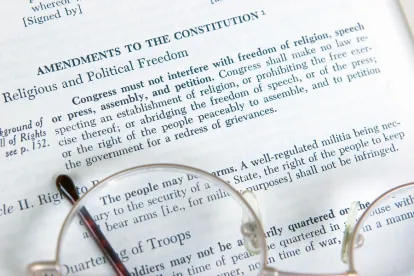The U.S. Court of Appeals for the Fifth Circuit has agreed to hear an interlocutory appeal challenging the CFPB’s constitutionality requested by the defendants in a lawsuit filed by the CFPB in 2016 that alleges the defendants engaged in abusive, deceptive, and unfair conduct in connection with making certain payday loans, failing to refund overpayments on those loans, and cashing consumers’ checks.
Unlike previous cases involving challenges to the CFPB’s constitutionality (most notably, PHH), the Fifth Circuit case represents the first such challenge in which the CFPB’s position will be determined under the leadership of Acting Director Mick Mulvaney rather than former Director Cordray. As a result (and particularly in light of statements by Mr. Mulvaney that legislative change is needed to ensure the CFPB Director answers to the President in the exercise of executive authority), it is far from certain that the CFPB will defend its constitutionality before the Fifth Circuit.
On March 21, 2018, the district court entered an order denying the defendants’ motion for judgment on the pleadings. Citing the D.C. Circuit’s en banc PHHdecision, the district court rejected the defendants’ argument that the CFPB is unconstitutional based on its single-director-removable-only-for-cause structure. It also rejected the defendants’ argument that the CFPB’s UDAAP claims violated due process because the Consumer Financial Protection Act fails to give fair notice of the conduct it proscribes.
The defendants subsequently filed a motion asking the district court to certify for interlocutory review both the question of whether the CFPB’s structure is unconstitutional and the question of whether principles of fair notice and due process prevent the CFPB from enforcing the CFPA’s UDAAP prohibition without defining the relevant terms. On March 27, the district court entered an order in which it granted the defendants’ motion only as to the question of the CFPB’s constitutionality. Citing the D.C. Circuit panel decision in PHH that held that the CFPB’s structure is unconstitutional and the dissent in the en banc decision disagreeing with the majority’s view that the CFPB’s structure is constitutional, the district court found there was a substantial ground for difference of opinion on the issue “amongst the jurists in the United States Court of Appeals for the District of Columbia who have considered the issue.” With regard to the due process issue, however, the district court found “no substantial ground for difference of opinion as to whether the terms [of the UDAAP prohibition] have been adequately defined by other federal statutes from which Congress borrowed when enacting the [CFPA].”
The defendants’ petition to the Fifth Circuit asking it to grant interlocutory review of the constitutionality issue, which did not directly address the merits of the defendants’ constitutional challenge and instead argued that the issue did not present a “controlling question of law” (one of the requirements for granting an interlocutory appeal in addition to a substantial ground for difference of opinion and that an immediate appeal may materially advance the termination of the case). According to the CFPB, “whatever the abstract merits of Defendants’ constitutional argument,” because Acting Director Mulvaney is removable at will by the President and ratified the CFPB’s decision to bring the lawsuit, any constitutional defect that may have existed with the CFPB’s initiation of the lawsuit was cured and the constitutionality of the for-cause removal provision was no longer relevant to the case.



 />i
/>i

